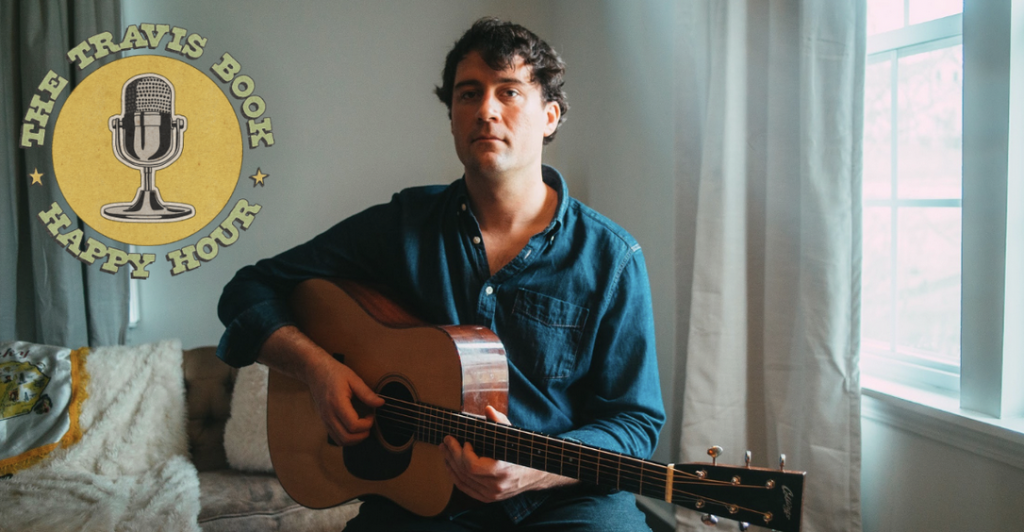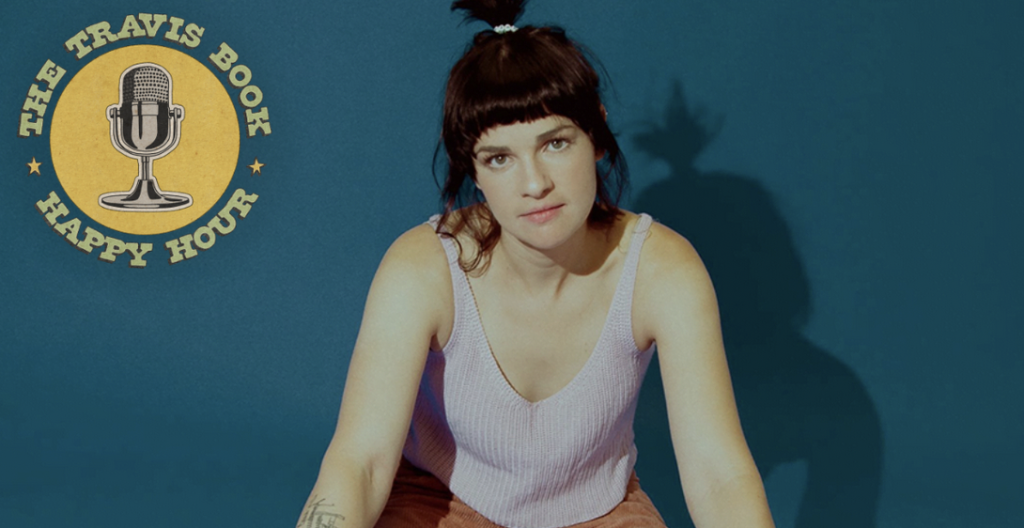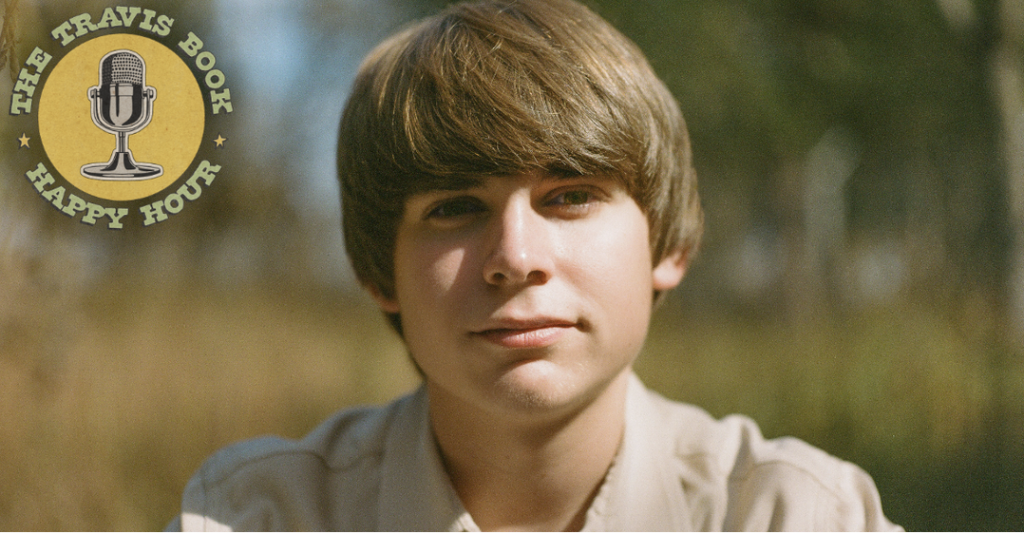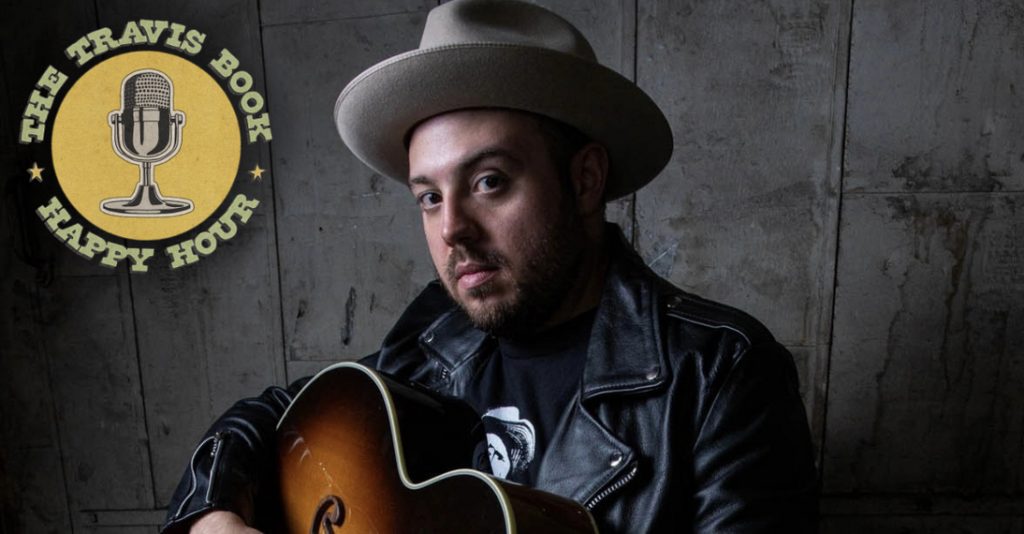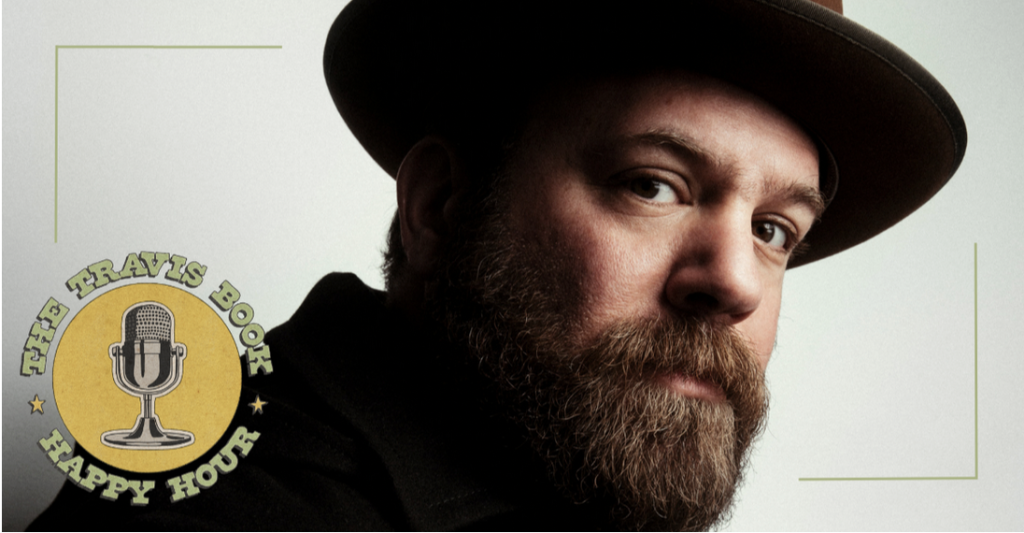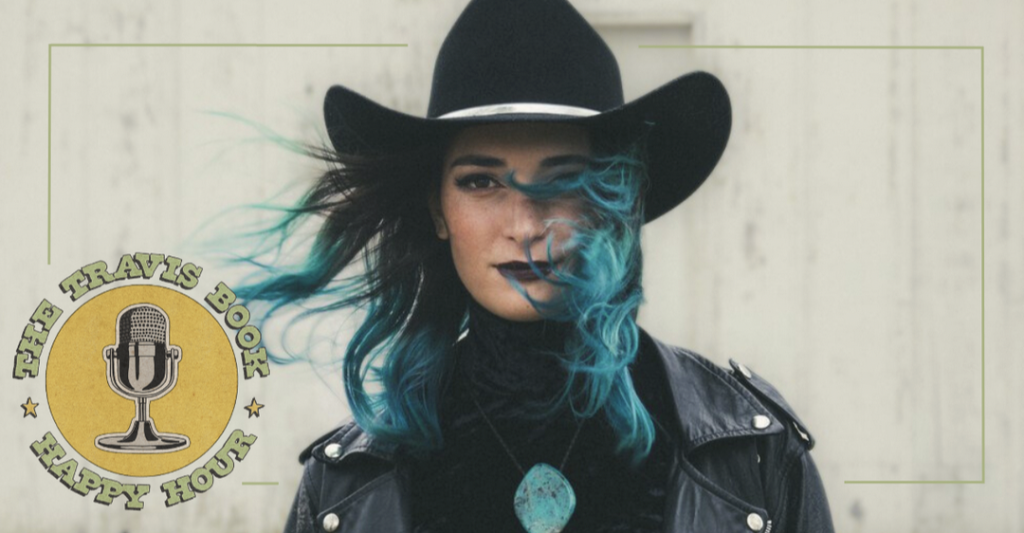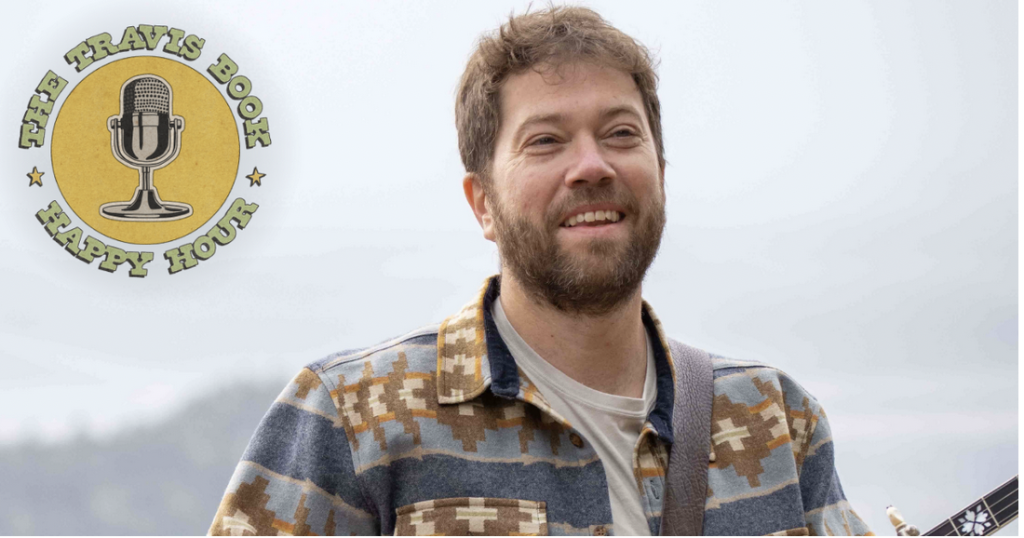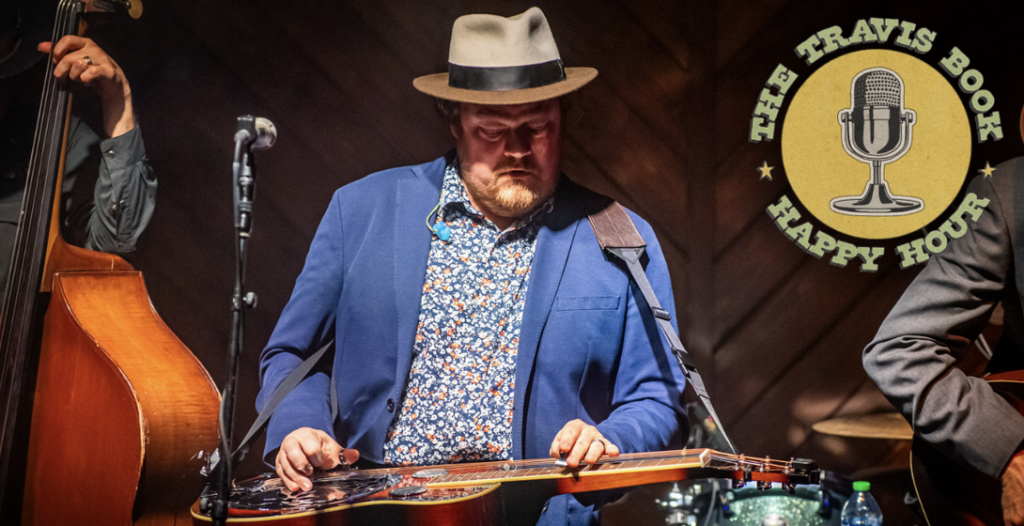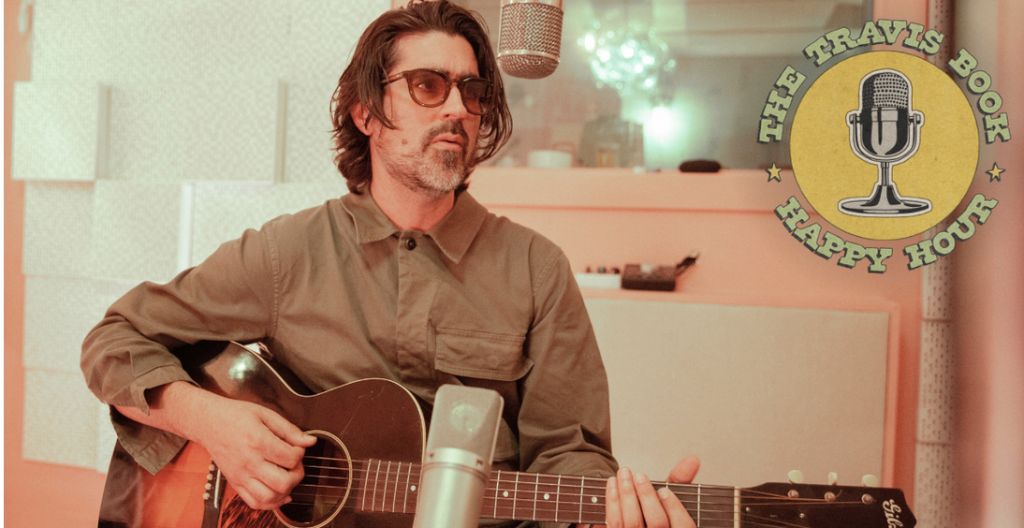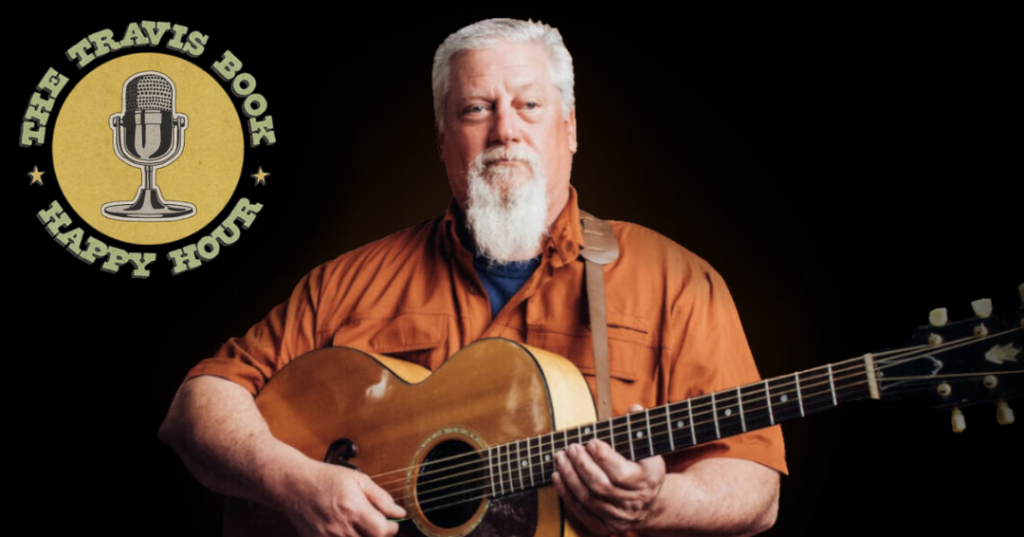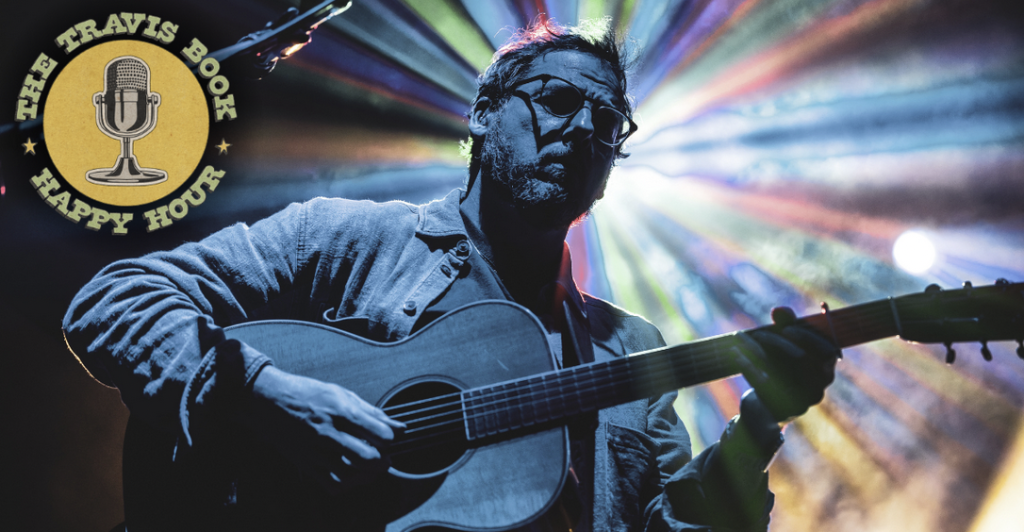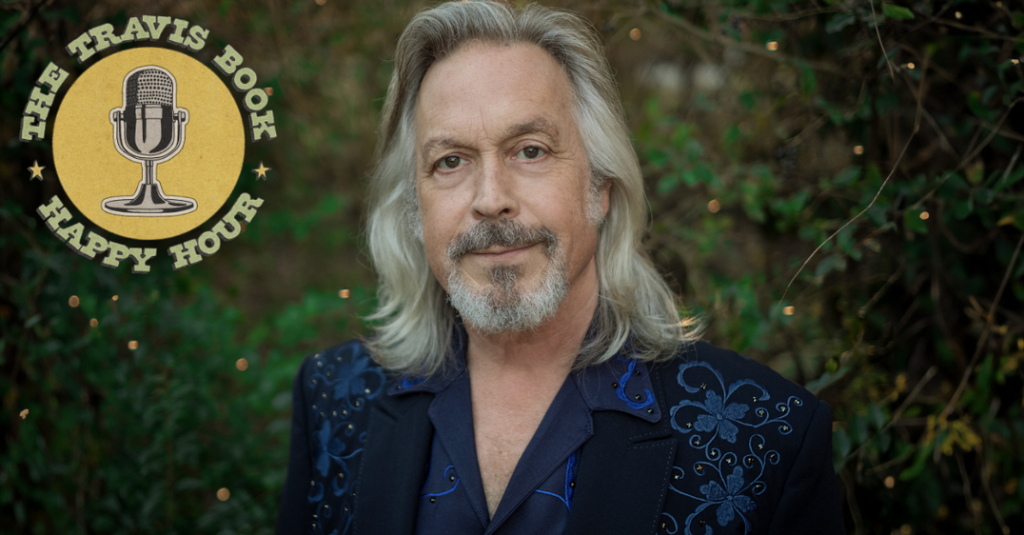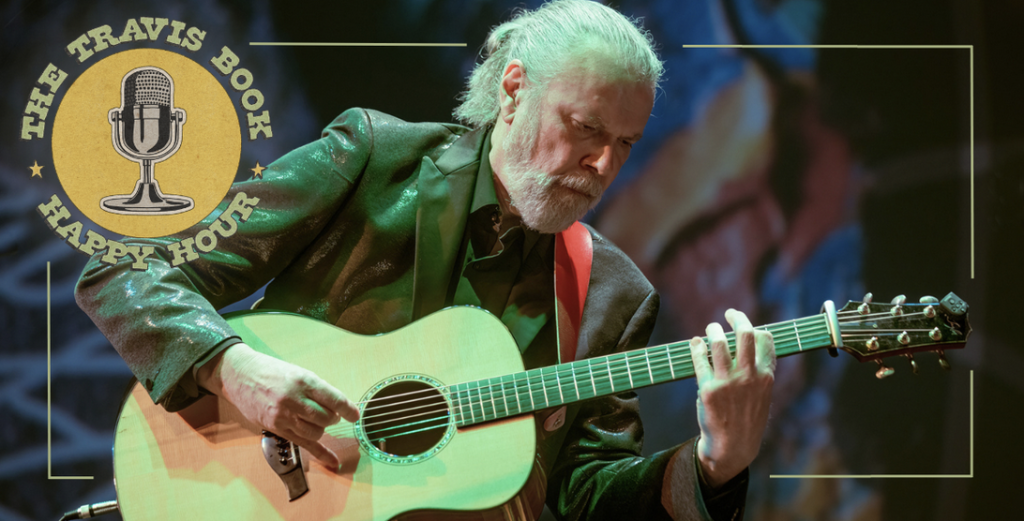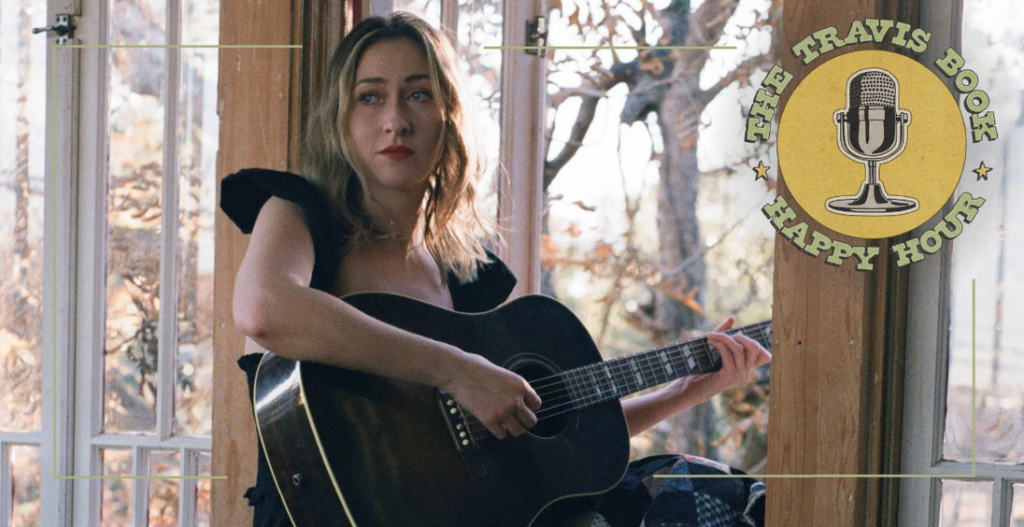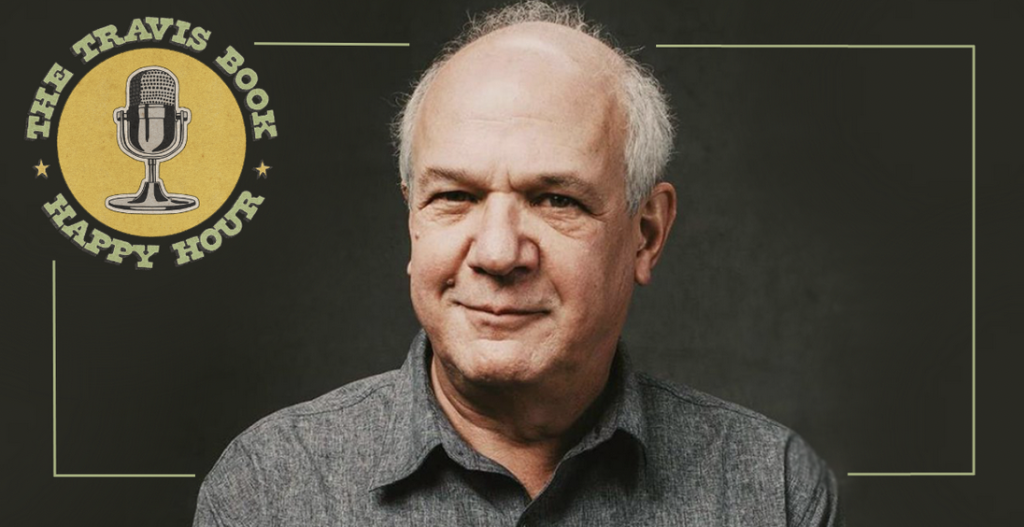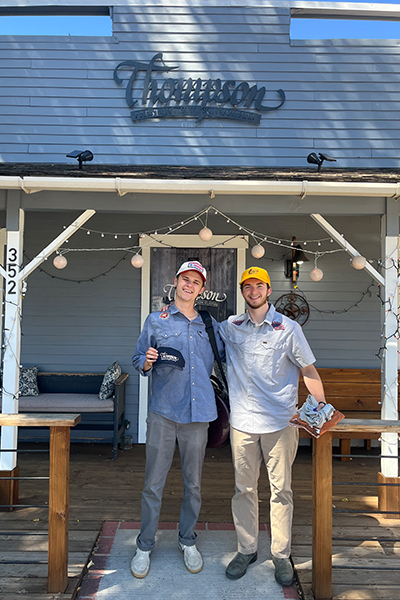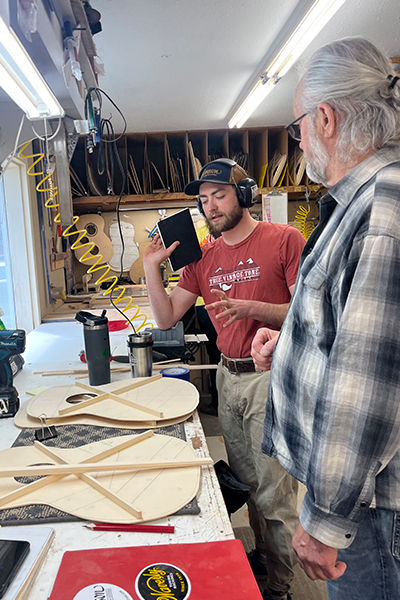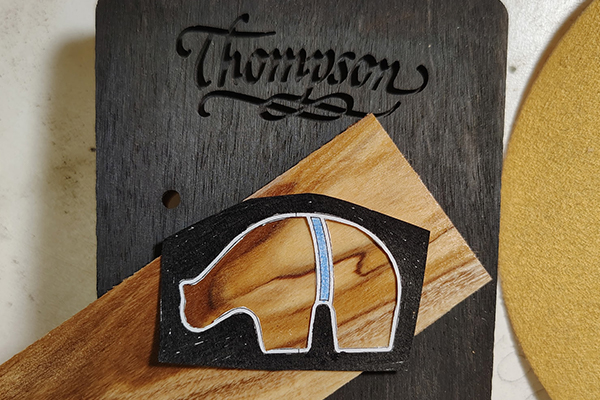Interviews of inspiration hosted by Travis Book, a pandemic opportunity taken into the future.
In the beginning over 20 interviews were filmed for the Travis Book Happy Hour and are located on TTBHH website. Recently the Bluegrass Situation has provided an outlet for TTBHH podcasts for future listeners. Each podcast and past video interviews are led by the host Travis Book from The Infamous Stringdusters. We wanted to let readers know more about what Travis was thinking when he started this endeavor talking with a myriad of musicians about the inspiration of their craft. We sent Travis some questions to enlighten folks about his vision and where it has taken him since the pandemic…
- When did the idea form in your mind about The TTBHH?
In June of 2020 I was getting antsy and wasn’t satisfied with just waiting to see what was going to happen with the pandemic. I wasn’t interested in just getting unemployment and chilling. I’d seen the positive response from some Instagram live sessions I’d done and decided to try to take things one step further and put on a show that would incorporate music, humor, and insight and help bring people together while we were isolated during the pandemic.
- Were you nervous when you started this interview style show and how have you relaxed into the role as the host?
I don’t really get nervous. I have a lot of faith that if I’m honest and available that the universe will work through me and the format really puts the impetus on the guest to be compelling! I’ve had a few guests that made me work for it and I’ve learned a lot about leading questions and reading a guest and an audience. I’m ok with being vulnerable and making mistakes and that reduces a lot of pressure. I also don’t have a need for the show to be something it’s not, or more than it is. It’s a little home-spun and lo-fi and I like that about it.
- How does it feel being a musician yourself and playing with each of these musicians?
Playing the music and sharing that space is the best part. The interview and inquiry is secondary for me. I love the opportunity to connect with so many musicians and the collaborative nature of the show is really what sets it apart from a regular podcast.
- Who was your first guest and location it was filmed?
My first guest was Sarah Siskind and we filmed/streamed from the Grey Eagle in Asheville. That episode was a little rough and because she’s my ex-wife the interview was… interesting… so I haven’t released that one as a podcast but it’s on YouTube. My second guest was Jon Stickley, but the show really got going and got it’s formula dialed in by the time I hosted Lindsay Lou. That show became episode 1 of the podcast and it’s really good, I think.
- What is the formula for your questions? and are they the similar or tailored for the guest?
I start at the beginning; where did you come up? Discovery of music type of questions. Then things veer into different territory. I’m less interested in promoting the latest project than I am getting to know the human and their process; why they do what they do. I’m interested in what I call “matters of being,” which is a catch-all term for spirituality, how we view the world, and in a practical sense how that informs our experience here in this life.
- I like the lightening round – what made you come up with that?? and any stand out memorable answers??
Lightning Round has taken on a few different forms over the years. Lately it’s been a this-or-that kinda format, which is actually really reductionist and antithetical to the reality that the world is not binary, but incredibly nuanced. But its fun at the end to just spit a bunch of questions at a guest and let them show us more about themselves and their preferences, what they’re into.
- Preparation for the show (song lists – other research?) or are things more spontaneous?
I start to work on the music two-weeks out, usually. Sometimes I only get enough time with my schedule to do a little listening and write some really basic charts, jot down a few lyrics for harmony. We rehearse for a couple hours prior to the show. I read up on the guest and create questions based on clues I pickup from other interviews. I don’t spend a ton of time on any of it, but I dig in enough to make sure I’m asking the right questions and getting to the heart of what’s important about the guest.
- Do you have a standard set of questions or are you just trying to evoke from each musician thoughts on their career and inspiration?
I tailor every interview question to the artist. I’ve done enough stock interviews where the interviewer has no idea who I am and no context and they’re expecting me as the interviewee to do their job for them. I lead with some information so they don’t have to go through the drudgery… for example instead of “Where did you grow up” I’d be more likely to say, “You grew up outside Detroit. How did proximity to that city and it’s musical heritage influence your early musical impressions.” Do enough bad interviews and you learn how to make it a lot easier for the guest.
- How many shows have you filmed and how many podcasts are out there?
We’ve done 42 or 43 and 38 are out there. I’m about caught up releasing previously recorded shows. There are a few that hit the cutting room floor and won’t be released, either because the interview was rubbish or the artist has evolved a lot since the episode was recorded. My engineer also lost two episodes. I recorded and streamed 20 episodes at least before I decided to edit them into podcasts so I’ve been playing catchup for a couple years now but I’m finally at a place where I’m releasing episodes soon after they’re recorded.
- Who have been your supporters for this endeavor (camera crew, production crew, sponsors)
Thompson Guitar was the first sponsor to approach me about supporting the show. They’ve been with me since 2020. The Grey Eagle house crew was great running video and audio. Currently I don’t do a video aspect; I just don’t have the bandwidth, but I have a great engineer Derek Studt who records 90% of the episodes and Ken Voltz captures photos we use for promo. The Bluegrass Situation approached me last year when I was pretty much ready to put the entire project on hold. They were looking to add to their podcast family and I needed someone to pick up the show where I leave off, which is after I’ve edited the episode. I’m not a promotion person, I don’t want to deal with uploading the episode, building reels, etc… I just want to create, so their partnership saved the podcast and has taken it to a much larger audience.
- How did the show evolve into a podcast?
After streaming for about a year I realized I could take the recordings and edit them down into an hour or so and I’d have a really unique podcast. I didn’t intend to start a podcast, but the content was there, I just had to edit it and make people aware.
- Who is your announcer (Bill)- what is his connection to you? – any funny stories about having an announcer for your show?
Bill is a friend of mine who moved to Brevard a few years ago. He has a reputation for doing MC work at festivals and when I started the live stream I wanted an Ed McMahon vibe with an announcer to help set the stage. Bill was already coming to all the shows so I asked him to introduce us. Occasionally there’s a little banter between us, and sometimes you can hear him or his wife Kasie heckle or guffaw during the show; they sit in the same spot every week.
- What do you personally get out of your shows , why do you do them – has that evolved?
I get to collaborate with and meet a lot of great musicians. I learn a lot about songwriting and creativity and process, which helps my own songwriting and creation. I get to bring great artists to Brevard, NC and share them with my audience at 185 King St. I also learn a lot of music and a lot of different styles of music and that stretches me as a player. I do it because it’s something I do. It doesn’t make me much money, and it’s a lot of work, but it’s creating something that will have lasting value and will live forever.
- Your interviews are very personal to the musician—they seem to open up to you and talk about how the music affects them and others. – any thoughts? why do they feel comfortable with you?
I don’t know why… perhaps some of it is because I’m a peer and they know that I know a lot of the things they know. Maybe they trust me because I’ve been on the other side of the interview.
- The list of players you have interviewed is varied and now quite extensive – how do you come to invite the different musicians (most are your friends from touring?) or what is inspiration/connection for the invitation? Does is feel like you start to think about someone and somehow that person comes to you by either a connection or encounter and is delighted to be asked to be on your show?
I have a running list of people i’d like to host and I reach out, plant seeds, and try to keep the conversation going until it works out for them to come. I’m always reaching for “bigger” artists but also really enjoy discovering someone who’s on their way up like Liv Greene for example. I require someone who’s an individual, bands don’t work, and someone who is making an original statement themselves. Someone who seems like they put some thought into what they’re doing. Sometimes people seem delighted, sometimes they take some convincing. More and more artists are coming to me asking to do the show, which has it’s upsides and downsides. I’m a people pleaser so it’s hard to tell people no, but I have a limited capacity for this; I can only do about one a month or 10 a year and I’m always trying to mix up youth and veterans, men and women, give voice to people who need voices and also tap into the experience that someone like Tim O’Brien or Jim Lauderdale can bring to the show.
- Who do you wish could be a guest that you haven’t been able to reach out to yet?
I’ve missed a lot of musicians on their ascendancy and I doubt I’ll get them now. Molly Tuttle, Madison Cunningham, Sierra Farrell… I’d have loved to get them but that’s unlikely now. Getting an interview is one thing, but getting someone to come to Brevard and collaborate and put on a show with me is a big ask and a tough call and not one that a musician who’s getting lots of huge offers and touring a lot is likely to answer. I’m very close to getting Darrell Scott on the show. I’d love to have Rodney Crowell, Peter Rowan… I’m always looking for seasoned veterans and women for the show. They tend to be the most interesting!
THANK YOU TRAVIS for taking the time to learn about other musicians and what makes them inspired!
Here is a sample of just a few of the artists interviewed for the podcast.
If you want to see the videos of the first 20 or so interviews they are available on his website and include: Sierra Hull, Nicki Bluhm, Josh Daniel, Mike Ashworth, Lindsay Lou, Jon Stickley, Sarah Suskind, Mimi Naja, Tommy Maher, Kyle Tuttle, Benny Galloway and others!
